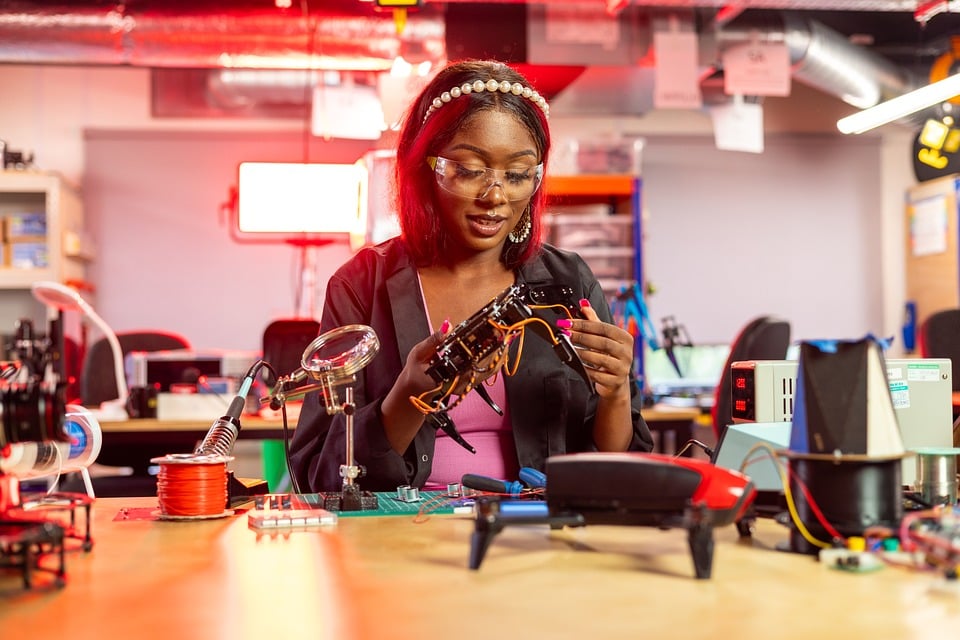In the wake of the digital revolution, one of the most transformative developments has been the rise of smart devices. From smartphones and tablets to smart home appliances and wearable technology, these interconnected devices have fundamentally altered the way we live and work. As we embark on a new era driven by innovation, it is crucial to explore the profound impact of smart devices on our daily lives and how they are reshaping our workplaces.
The Evolution of Smart Technology
Smart devices are characterized by their ability to connect to the internet and communicate with other devices, creating an integrated network of functionality and convenience. This evolution began with the advent of the internet and mobile technology, which laid the groundwork for the interconnected world we inhabit today. The introduction of Internet of Things (IoT) technology allowed everyday objects to transmit data, leading to a wave of products that enhance efficiency, convenience, and quality of life.
Enhancing Our Homes
One of the most visible impacts of smart devices is in our homes. Gone are the days of manually adjusting the thermostat or flipping light switches. With smart home technology, we can control our environments with the touch of a button or a simple voice command. Smart thermostats like Nest learn our habits and preferences, optimizing energy usage and reducing utility bills. Smart lighting systems allow for customizable ambiance and energy conservation, while smart security cameras and alarms provide peace of mind with round-the-clock monitoring.
Moreover, smart appliances such as refrigerators, ovens, and laundry machines increase efficiency with advanced features. They can notify users when tasks are complete or when supplies are running low, making household management seamless and less time-consuming.
Transforming Our Workplaces
The influence of smart devices extends far beyond the home, significantly affecting the modern workplace. Organizations are leveraging smart technology to enhance productivity and streamline operations. Tools such as cloud computing, collaboration software, and smart devices help teams communicate and work together in real-time, regardless of their physical location. This shift toward remote work is fueled by devices like laptops, tablets, and smartphones that enable professionals to stay connected and productive on the go.
Smart devices also foster data-driven decision-making in the workplace. Wearable technologies in industries such as healthcare and manufacturing provide real-time data about worker health and performance. Similarly, smart sensors in supply chains help track inventory, forecast demand, and optimize delivery routes, contributing to better overall efficiency.
Health and Well-Being
The rise of smart devices has also revolutionized personal health management. Health and fitness trackers, such as Fitbit and Apple Watch, collect data on heart rate, activity levels, and sleep patterns, providing insights that empower users to make healthier lifestyle choices. Telemedicine platforms utilize smart devices to facilitate virtual consultations, enabling convenient access to healthcare professionals. During the COVID-19 pandemic, these technologies played a crucial role in maintaining continuity of care while adhering to social distancing guidelines.
Challenges and Considerations
Despite their numerous benefits, smart devices also present challenges. Concerns over privacy and data security are paramount as the proliferation of connected devices increases the risk of cyberattacks and data breaches. Additionally, the digital divide raises questions about accessibility, as not everyone has equal access to these technologies, potentially exacerbating existing inequalities.
Moreover, the rapid pace of technological advancement can lead to obsolescence, with consumers constantly pressured to keep up with the latest model or software update. This cycle can contribute to increased electronic waste, raising environmental concerns.
The Future of Smart Devices
Looking ahead, the future of smart devices is brimming with potential. As technology continues to evolve rapidly, we can anticipate even more seamless integration between devices and systems. The emergence of artificial intelligence (AI) promises to enhance the capabilities of smart devices, making them more intuitive and responsive to our needs. Smart cities, powered by interconnected devices, aim to improve urban living by optimizing traffic flow, energy usage, and public services.
In conclusion, smart devices are undeniably revolutionizing the way we live and work. Their ability to connect, automate, and enhance our daily activities has transformed households and workplaces alike. While challenges remain, the potential benefits of smart technology offer a glimpse into a future where our environments are more connected, efficient, and responsive to our needs. As we navigate this rapidly changing landscape, embracing innovation while addressing concerns will pave the way for a smarter, more sustainable world.


